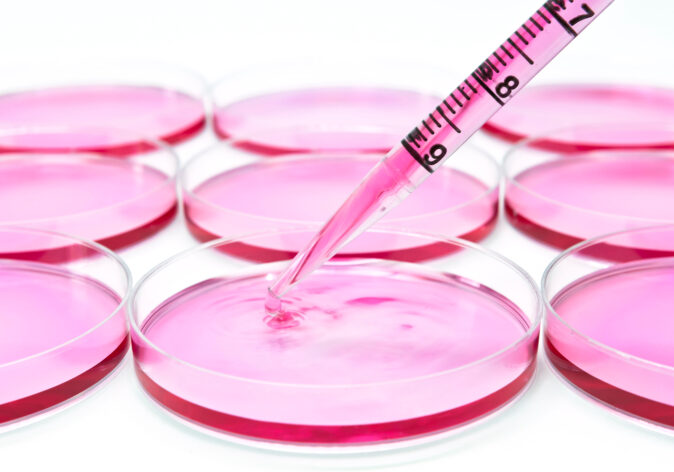Two drugs targeting the same molecule in a fast-growing type of breast cancer are better than one, even in women with earlier stage disease.
The international APHINITY study, published in the Journal of Clinical Oncology in 2024, involved more than 4,800 people with HER-2-receptor positive breast cancer, which accounts for about one in five cases of breast cancer.
The study investigators – including researchers from Breast Cancer Trials in Australia – were asking whether using two drugs to target the HER2 receptor could improve survival in women with early-stage disease.
When the study launched, there was already evidence that treating advanced HER2-receptor-positive breast cancer with two different drugs targeting the HER2 receptor – trastuzumab (Herceptin) and pertuzumab (Perjeta) – in combination with chemotherapy made a big difference to survival.

The APHINITY study looked at whether those same benefits would occur in women with earlier stage disease, before the cancer had spread.
Half the participants were randomised to get the two HER2-receptor-targeting drugs plus chemotherapy, and the other half received trastuzumab only plus chemotherapy and a placebo infusion.
The study found that the combination of the two HER2-receptor-targeting drugs did improve survival in earlier stage disease, but only in women whose tumour had spread to their lymph nodes.
In those participants, the combination of trastuzumab and pertuzumab was linked to a nearly 5% greater likelihood of having no recurrence of their cancer at eight years after starting treatment, compared to the participants only treated with trastuzumab.
This translates to nearly five fewer women in every 100 with this type of cancer would have their disease return in the eight years after treatment
But in the people whose cancer hadn’t spread to their lymph nodes, adding pertuzumab to trastuzumab didn’t make a significant difference to their disease-free survival rates.
“I would describe APHINITY as a bridge between when the standard was just chemotherapy and trastuzumab, by saying that adding pertuzumab is a little bit better, at least in more advanced disease,” said Associate Professor Nicholas Wilcken, the Breast Cancer Trials study chair of APHINITY.
It has also paved the way for this combination treatment to be used before surgery, which, for some patients, can mean less extensive surgery. “Now there’s an emphasis on giving the chemotherapy before the surgery, not after the surgery,” Prof Wilcken said. “It does two things: one is it shrinks the tumour; and, the other is it gives you a test run to see how well your treatment works. We now know that if there’s still some residual tumour at surgery after the two targeted drugs, a change in drug treatment leads to better survival.”
Publication
Loibl, S et al. (2024) Adjuvant Pertuzumab and Trastuzumab in Early Human Epidermal Growth Factor Receptor 2–Positive Breast Cancer in the APHINITY Trial: Third Interim Overall Survival Analysis With Efficacy Update. Journal of Clinical Oncology, 42 (31), P **-**. https://doi.org/10.1200/JCO.23.02505
Support Us
Help us to change lives through breast cancer clinical trials research



